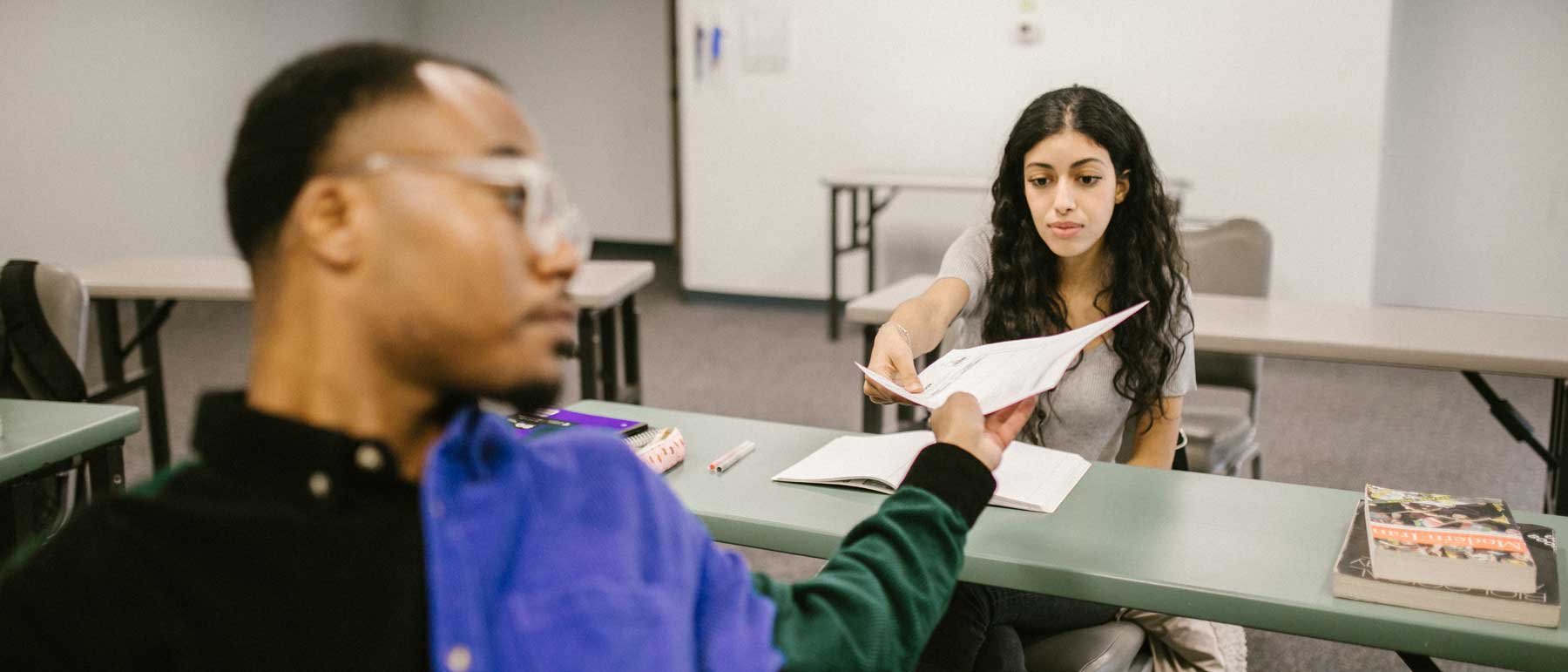
Syllabi
Potential ways to transform a syllabus to a more student-centered document
- Define what a syllabus actually is near the top, for those who may not have been exposed to this type of document. All faculty members create syllabi differently, but here are some general, student-centered examples:
- "A syllabus is your guide to this course, outlining the expectations and responsibilities for each of us to meet, as student and instructor, along with information about useful resources to help every student succeed."
- "This syllabus provides an outline of important information about the class: what you will learn, a schedule of assignments/deadlines, my grading and attendance policy, required reading and where to find materials, and the tools/resources provided for each of you to succeed."
- Add an Inclusive Teaching Statement; view examples of inclusive teaching statements here.
- State your welcome of documented requests for student accommodations as the opportunity to include each student more equitably in learning.
- Specifically communicate your intention for each student to be successful in the course. It is helpful to include this statement supportive of student success in emails to students throughout the semester.
- Share your concern for the wellbeing of every student by including links to campus resources.
- Change listed "Office Hours" to "Student Hours" in order to communicate that this time is set aside specifically for students and that it is a student-focused time period.
- Intentionally choose required course materials that are no-cost or low-cost, that can be acquired through public/open access, and/or that you provide direct links for students to access within the learning management system (Canvas). VCU’s Open and Affordable Content Initiative helps instructors transition to zero-cost textbooks for their courses, using library resources or Open Educational Resources.
- For required texts listed on the syllabus, intentionally choose texts and readings from a wide range of diverse authors in your field.
- Include a built-in coffee hour with the professor or a Professor AMA (Ask Me Anything), either virtually or in-person. These are most helpful at the beginning of the semester for students to ask questions about the syllabus and get to know the instructor, and again as a mid-term check-in. These sessions can be focused on the course, yet also expanded to include Q&A about related courses, majors, mentorship and career advice.
- Avoid stating definitive numbers such as expected assignment completion hours and study hours and instead frame expectations in terms of a range, communicating that each student is unique and will necessarily vary. Use ranges to express student outputs whenever possible and appropriate.
- Express that taking risks, potential struggle and facing challenges are all part of the learning process in your course, not a sign of student weakness. Include in the syllabus a specific, step-by-step approach that a student should take if they need help. Some students are more inclined than others to contact the instructor, so articulate the exact 1-2-3 process to implement when a student encounters difficulties.
- Add a Land Acknowledgement and provide tools recognizing the original custodians of the land which your university now occupies. Example: "I acknowledge and honor the Powhatan Tribe, and all of the original Indigenous peoples of the land upon which Virginia Commonwealth University stands." More detailed information on Land Acknowledgement in syllabi is provided by many universities. Origins of this movement and an opportunity to pledge to honor Native Land is available through the U.S. Department of Arts and Culture. Lists of resources for more research on planning to do land acknowledgement are available on the American Indians in Children’s Literature blog. Note that this must not be a performative gesture, but acted upon and integrated throughout one’s teaching, going beyond Land Acknowledgements and centering oppressed peoples.
- Add Anti-Racist Syllabus Statements [Google Doc] to convey that not only are you ‘tolerant’ of multiple different viewpoints, but your approach will work to actively counter racism in every form in which it occurs.
- Take the Syllabus Challenge: Infusing Inclusive Practices developed by Kim Case, Ph.D., professor of psychology at VCU and director of faculty success in the Office of the Provost.